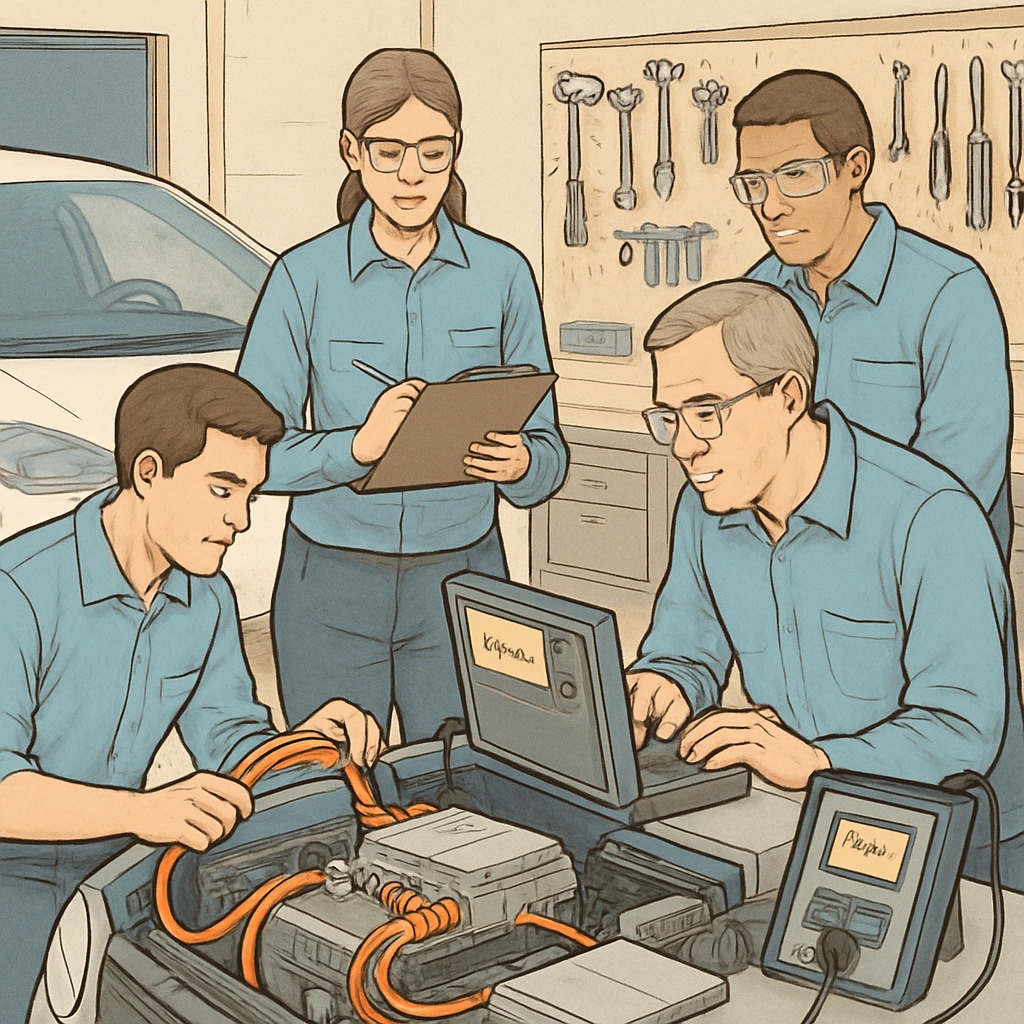In today’s rapidly evolving automotive industry, the integration of electrical skills acquired during apprenticeships is proving invaluable for career advancement. With the growing demand for electric vehicles (EVs) and smart automotive systems, professionals equipped with both electrical knowledge and automotive expertise stand out as highly sought-after candidates. This article explores the significance of electrical apprenticeship experience in the automotive sector and its impact on long-term career prospects.
Why Electrical Skills Are Crucial in the Automotive Industry
The automotive sector is undergoing a transformation driven by electrification, automation, and connectivity. As a result, traditional automotive repair skills alone may no longer suffice. Electrical knowledge has become a cornerstone for understanding and maintaining modern vehicles equipped with advanced battery systems, sensors, and control units.
- Electric Vehicles (EVs): EVs rely on complex electrical systems, including high-voltage batteries and power electronics. Professionals with electrical training can diagnose and repair these components effectively.
- Smart Systems: Features such as adaptive cruise control, lane assist, and infotainment systems require expertise in electronics and software integration.
- Energy Efficiency: Electrical skills enable technicians to optimize energy usage in hybrid and electric vehicles, contributing to sustainability goals.

As a result, automotive professionals who have undergone electrical apprenticeships are uniquely positioned to bridge the gap between mechanical and electrical engineering disciplines, making them indispensable in the modern industry.
The Career Advantages of Electrical Apprenticeship Experience
Electrical apprenticeships provide hands-on training in wiring, circuit design, and troubleshooting—skills that align closely with the needs of the automotive industry. Combining these competencies with automotive repair qualifications creates a powerful synergy, offering several career advantages:
- Enhanced Employability: Employers increasingly value candidates who can work across disciplines, especially in roles related to EV maintenance and smart vehicle development.
- Higher Earning Potential: Specialized skills often lead to higher salaries and better job security.
- Career Versatility: Professionals can transition into related fields such as renewable energy or robotics, leveraging their electrical expertise.

For example, an individual with both electrical and automotive qualifications could pursue roles in EV manufacturing, charging infrastructure development, or advanced diagnostics—areas that are expected to experience significant growth in the coming decades.
Preparing for a Future Dominated by Electrification
The automotive industry’s electrification and digitalization trends show no signs of slowing down. According to Britannica, electric vehicles are projected to dominate global markets, driven by environmental regulations and consumer demand for green technology. Similarly, innovations such as autonomous driving depend on electrical and software expertise.
Professionals can stay ahead by investing in cross-disciplinary education and training. Electrical apprenticeships provide a solid foundation, while certifications in automotive technology, EV maintenance, or software programming can further enhance their skill sets. As a result, these individuals will be better equipped to adapt to industry changes and thrive in high-demand roles.
Conclusion: The Value of Cross-Sector Skills
Electrical apprenticeship experience is more than just a stepping stone; it’s a transformative asset in the automotive industry. By combining electrical knowledge with automotive repair skills, professionals can unlock unparalleled career opportunities in high-growth areas such as EV technology and smart systems. As the automotive sector continues to evolve, this cross-sector synergy will remain critical for staying competitive and achieving long-term success.
Whether you’re an aspiring technician or an experienced mechanic, consider how electrical training can complement your automotive expertise and set you on the path to a thriving career.
Readability guidance: Use short paragraphs and lists to summarize key points; incorporate relatable examples and external references for credibility; maintain an average sentence length while balancing technical details with accessibility.


